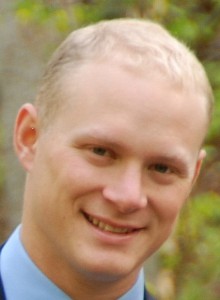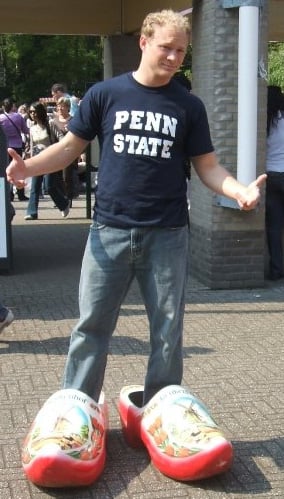 My Fulbright grant was unique in that in addition to being sponsored by the U.S. Department of State, it was supported by the Netherland-America Foundation (NAF), an organization seeking to strengthen the bonds between the United States and the Netherlands through exchanges in the arts, sciences, education, business, public policy and historic preservation. As a Fulbright-NAF Fellow, I wanted to actively participate in community-wide events that maintained and fostered ties between the Netherlands and United States.
My Fulbright grant was unique in that in addition to being sponsored by the U.S. Department of State, it was supported by the Netherland-America Foundation (NAF), an organization seeking to strengthen the bonds between the United States and the Netherlands through exchanges in the arts, sciences, education, business, public policy and historic preservation. As a Fulbright-NAF Fellow, I wanted to actively participate in community-wide events that maintained and fostered ties between the Netherlands and United States.
One such event was the 64th Annual Memorial Day Ceremony held at the Netherlands American Cemetery and Memorial. Located in the village of Margraten (roughly six miles from Maastricht), the cemetery is historically significant because of its location near the famous Cologne-Boulogne highway built by the Romans and used by Caesar, Charlemagne, Charles V, Napoleon, Kaiser Wilhelm II, and Hitler. As a military officer, I found this battlefield cemetery site, and similar sites such as Eindhoven, Nijmegen and Arnhem, fascinating because of the critical roles these battles played during World War II.
As both a Fulbright Fellow studying at Maastricht University and a U.S. Army officer assigned to the U.S. Embassy’s Defense Attaché Office, I specifically supported this event to help connect Dutch locals with fallen American soldiers’ family members. During the ceremony, I escorted American World War II veterans and listened to a plethora of their war stories. Additionally, I mingled with numerous Dutch leaders, politicians and business people from the surrounding area. From my participation in the Memorial Day Ceremony at Margraten, I directly experienced the principal purpose of the Fulbright Program – to increase mutual understanding between the people of the United States and the people of other countries.
During my grant, I also had an opportunity to participate in other Dutch-American sponsored events hosted by organizations such as the Dutch Fulbright Center and the U.S. Embassy in The Hague. Although each event was different, they all enabled me to represent the United States and the Fulbright Program in the Netherlands. As a Fulbright grantee, my involvement with Dutch communities not only enriched my life but also helped to promote the United States’ diplomatic goals.
The Fulbright U.S. Student Program, sponsored by U.S. Department of State’s Bureau of Educational and Cultural Affairs, is unlike any other fellowship, scholarship or grant offered nationwide because it allows participants to: 1) learn about foreign cultures and customs while developing language and leadership skills, 2) study and conduct research in any field of study with foreign professors at international universities (or with organizations, conservatories, labs, studios and non-governmental organizations – make sure to check the individual country summary requirements before applying), 3) assistant teach English, and 4) serve as U.S. cultural ambassadors. Not only will your Fulbright experience be highly rewarding to you both professionally and personally, but you will be able to share the knowledge you gained as a Fulbrighter with everyone you connect with throughout your life.
Middle Photo: Netherlands American Cemetery and Memorial
Questions for Nathaniel about his Fulbright experience? Feel free to email him at Nate.AlumniAmbassador@fulbrightmail.org.



